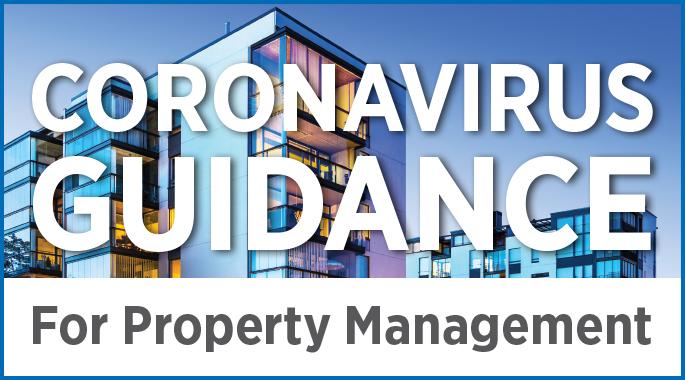
Michael J. Ostermeyer is a real estate partner in the Phoenix office of the Ballard Spahr law firm.
Force Majeure – Have You Been Constructively Evicted by the Coronavirus?
Look at your lease. By all appearances, the COVID-19 pandemic is fixing to send the real estate industry down a bumpy road. In markets that once percolated with activity, tenants are frantically completing for CARES Act benefits, landlords anxiously stand by for rent checks to arrive, and developers and investors now hesitate and re-evaluate their options.
Many tense conversations shared amid this uncertainty are well-larded with mentions of “force majeure.”
A force majeure clause in a contract—sometimes also called an “unavoidable delay clause”—allocates by agreement of the parties the risk of nonperformance owing to those unforeseen events defined in the relevant clause. The clause effects this allocation by excusing or suspending a party’s obligation as to performance that has been obstructed, beyond the reasonable control of the performing party, by a force majeure event.

In more stable times, force majeure gets little attention. With as much uncertainty as the near future holds, however, a force majeure clause may be uncommonly important, particularly in situations where non-financial performance constitutes a key part of a contract. In build-to-suit deals of all kinds, for example, as well as in lease conveyances that obligate a landlord to fit out a premises as a condition to its demise, timely delivery is an essential term of the deal. Likewise, in leases that require a tenant’s uninterrupted operation in connection with a percentage rent calculation (e.g., nearly all retail food service leases), the tenant’s daily opening for on-site sales is equally essential. But now that governmental orders have directed many workforces to stay at home and closed or sharply limited access to public spaces and nonessential services, it will be interesting in several dimensions to watch how force majeure provisions operate.
In assessing a force majeure clause, the threshold question is whether one or more particular events amount to “force majeure.” Here, contracts vary widely. Some refer only to delays caused by “Acts of God,” some enumerate those acts parsimoniously, some propound a generous list of intervening acts, and some reject enumeration in favor of a general enabling concept—such as “events or occurrences of any kind outside the reasonable control of the party charged with performance.” As a result, parties that are similarly situated in their commercial contexts may experience quite different outcomes based on modest variations in contract language. Resolving these outcomes will depend on answering questions such as these: Is the epidemic spread of the coronavirus itself an event of force majeure? How about a governmental quarantine order aimed at limiting the spread of the COVID-19 disease? An employer policy that carries out a governmental order? An employer policy that extends a governmental order? What about voluntary private-party acts that are consistent with governmental policies or guidelines, but not strictly compelled by those measures? Lease language itself, narrowly read as required by the prevailing rules of contract interpretation, will shape the answers to those questions.
A second question to watch will be whether an event properly considered force majeure actually caused the relevant nonperformance. Parties seeking refuge based on an unavoidable delay will also need to show that a force majeure event actually caused the party’s inability to perform. Events that make performance harder or more costly generally will not mount this hurdle. In the real estate context, the nature and scope of governmental action and the nature of the private action it triggers will be important factors.
A third question of great consequence will be whether an event deemed to be force majeure and agreed to have caused a delay in some performance will be deemed supervening as to all performance—most specifically, to justify payment delays. In truth, an unavoidable delay clause may not offer much refuge against performing financial covenants, such as paying tenant allowances or paying base rent and additional rent, since such clauses commonly exclude payment of rents and other financial obligations from the operation of force majeure. In any event, leases typically recite that the obligation to pay rent is “an independent covenant”—which is to say that a tenant must pay rent notwithstanding its landlord’s failure to perform one or more of its lease obligations.
Finally, collateral arguments will inevitably be put in play. Among these will certainly be claims that, even if the ravages of COVID-19, or the various responses to it, did not engender an unavoidable delay within the meaning of the relevant contract, one or more prevailing circumstances in a deal effectively undermined the bases on which the contract was formed, or otherwise gave rise to other bases for relief. Here, disputes—particularly in the lease context—are likely to focus on three questions. The first is the question of constructive eviction: whether a closure order so interfered with a tenant’s use and enjoyment of a premises as to have effectively dispossessed the tenant of that premises in a way that amounts to an eviction. The second is the question of frustration of purpose: whether a tenant finds that the purpose for which it bargained, as known to the landlord, has been so frustrated by the material difficulty or substantial impracticability of performing that it has thwarted the tenant’s fundamental purpose for entering into its lease. And the third is the question of impossibility: whether an unforeseen and supervening event has in fact made the purposes for which the parties formed the contract impossible to perform.”
As a final thought, it is good to remember that whatever the dispute, open lines of communication are often beneficial. In any dispute over performance, the path forward becomes far easier to determine when both parties understand where value and benefit lie for the other party. If nothing else, communicating as much as circumstances permit can reduce pointless friction and mitigate uncertainty. As we head toward a very turbulent time, an appropriate amount of openness can yield big dividends in terms of value.




